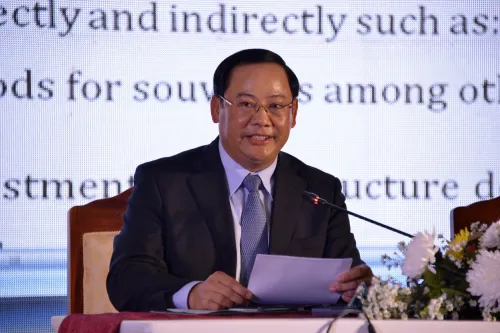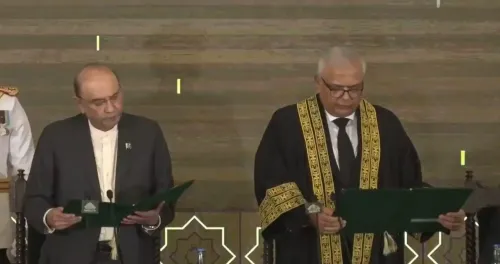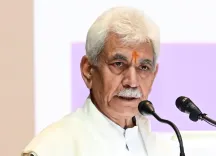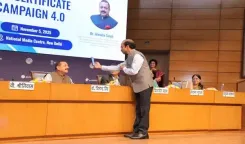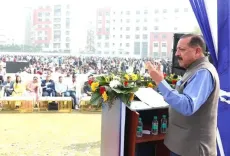How Will New Thai PM Revive the Economy Amid Challenges?
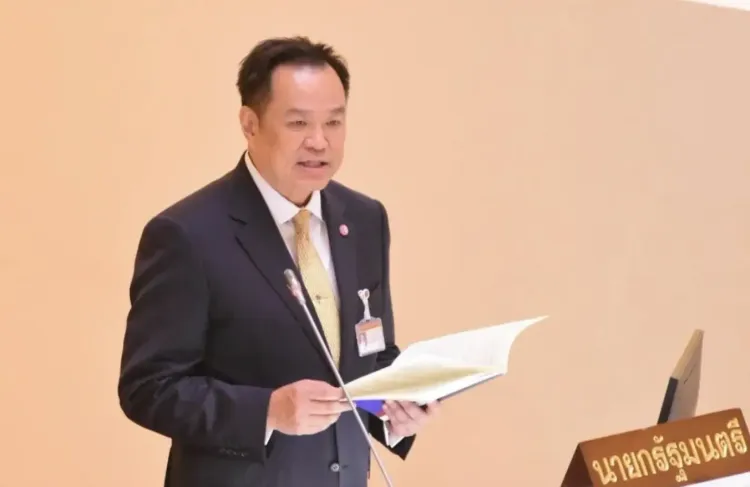
Synopsis
Key Takeaways
- Economic Revival: Focus on increasing income and reducing costs.
- Tourism Confidence: Enhancing safety measures for tourists.
- Social Integrity: Committing to combat corruption and illegal gambling.
- Environmental Focus: Supporting clean energy and disaster preparedness.
- National Strategy Alignment: Policies to align with long-term national objectives.
Bangkok, Sep 29 (NationPress) Thailand's Prime Minister Anutin Charnvirakul presented his government's policy statement to parliament on Monday, detailing an extensive plan aimed at economic revival amidst various challenges.
In his address to the National Assembly, Anutin, who also serves as the interior minister, recognized the "uncertainty on all fronts" confronting the nation and emphasized the necessity to tackle immediate issues while establishing a foundation for sustainable growth, as reported by Xinhua News Agency.
Regarding the economy, Anutin stated that his government’s agenda focuses on increasing citizens' income and decreasing living expenses, addressing debt challenges, encouraging savings, and restoring tourist confidence through improved safety measures and domestic stimulus initiatives.
On the national security front, priorities include peacefully settling border disputes with Cambodia and adopting a proactive foreign policy to elevate Thailand's global standing, he explained during the joint parliamentary session.
Addressing social issues, he affirmed the administration's dedication to combating all types of illegal gambling, upholding the rule of law, and vigorously fighting corruption, while ensuring fiscal discipline, transparency, and operational efficiency.
He highlighted that the policy also encompasses environmental concerns, with plans to hasten the implementation of early disaster warning systems, particularly in high-risk zones, and to promote a low-carbon society by backing clean energy initiatives.
The prime minister reassured that all policies would be in line with the current national strategy, which seeks to guarantee equitable access to education and healthcare, empower the private sector—especially SMEs—to adapt to global trends, and modernize national industries towards targeted sectors.
Despite operating within a limited timeframe and budget established by the previous administration, Anutin expressed his minority government's commitment to facilitating a public referendum and constitutional amendments through inclusive participation.
The two-day session, which is set to conclude on Tuesday, marks the formal commencement of Anutin's administration.
The 59-year-old leader of the Bhumjaithai Party was elected as the 32nd prime minister of the Southeast Asian nation after securing a parliamentary vote earlier this month.
As part of an agreement with the opposition People's Party, which backed his premiership bid without joining the coalition, Anutin has pledged to dissolve the lower house of parliament within four months after officially assuming office.

